Building Community. Making an Impact.
Student groups foster exciting experiences, innovative thinking, and lasting memories beyond the classroom.
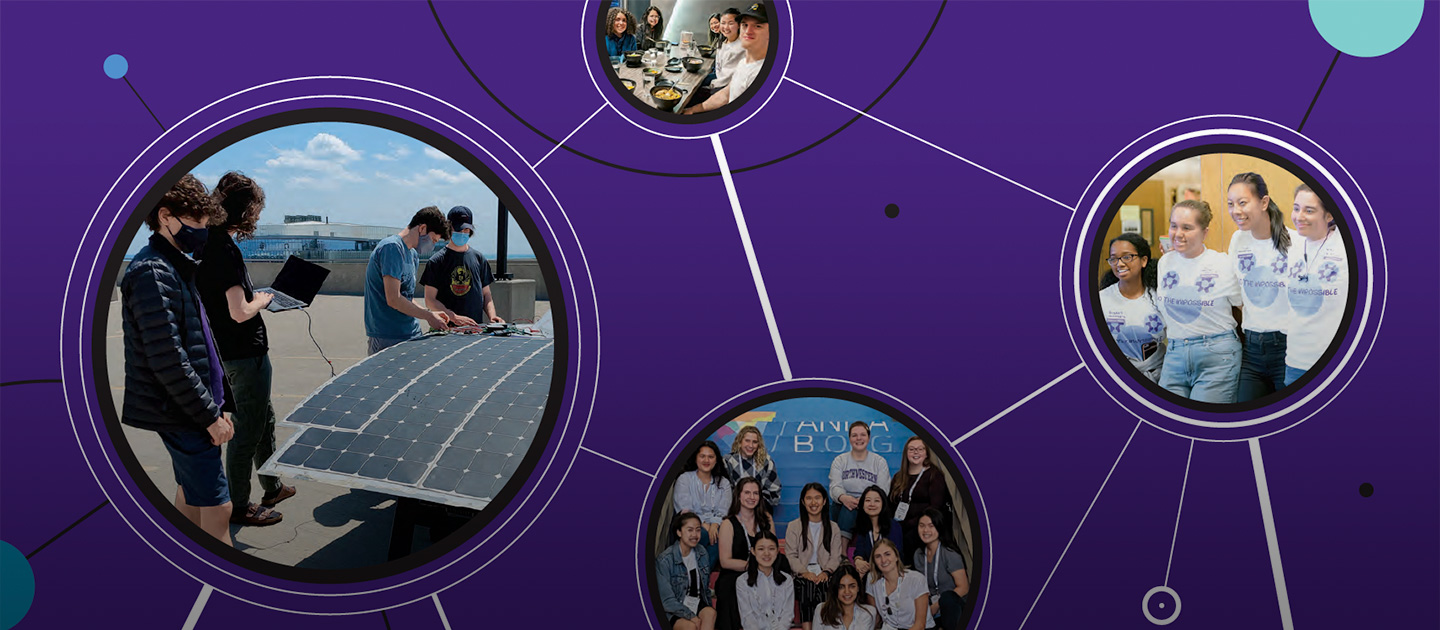
Forging relationships and friendships that last a lifetime is a vital part of the Northwestern Engineering experience. Many undergraduate students form these essential connections in student groups.
“When alumni come back for events, they always remember the projects and competitions they had in their student groups,” says Ellen Worsdall, assistant dean for student affairs. “Those stories live long in their memories after they graduate.”
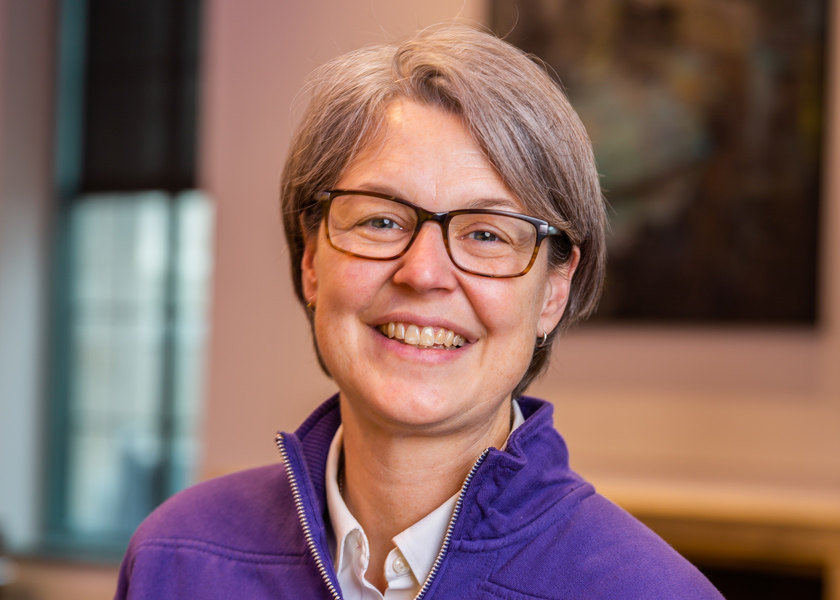
For more than 20 years, Worsdall has worked with McCormick School of Engineering departmental, design, special interest, and honors student groups. As assistant dean, she gives student groups support and structure, organizing programming to strengthen leadership skills, helping them identify organizational goals, and working with them to establish professional networks with industry partners.
“We want to make sure students develop their own leadership styles and partner with the school and other student groups to help everyone grow and learn together,” she says.
Worsdall’s work setting up these groups for success has a far reach: about half of engineering students take part in one or more of the 29 engineering school groups or the dozens of other student groups across Northwestern.
That means outside of the classroom, students have a multitude of options to learn how to work in teams and apply lessons learned to real-world situations. Groups also help students gain useful experience while figuring out what they want to do professionally. Club projects offer a chance to develop problem-solving, leadership, time-management, budgeting, and networking skills.
For most students, relationship building is the best part of joining a student group, Worsdall says. In addition to friendships, students develop mentoring relationships with older students and those pursuing different majors.
“The energy students bring to groups is exciting,” says Worsdall, adding, “There are always new ideas—it’s never the same day twice.”
Here are just a few of the student groups working to make an impact, both inside and outside Northwestern.
McCormick Student Advisory Board
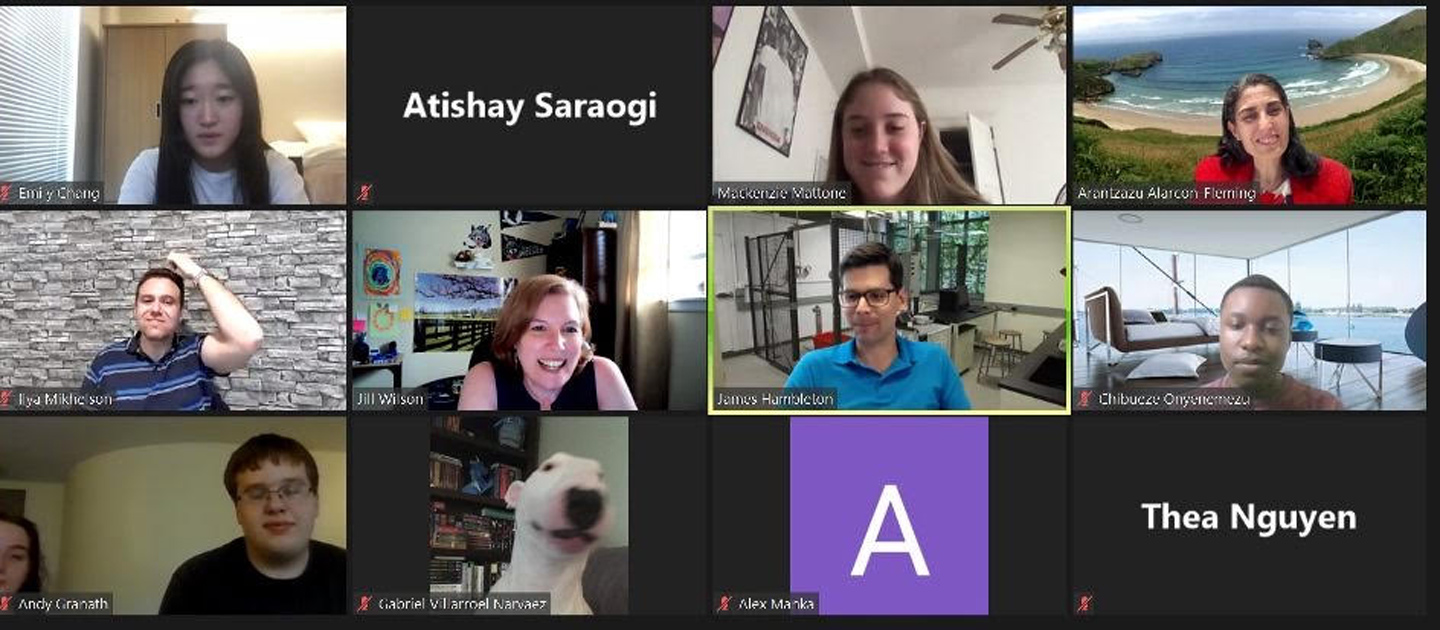
When the COVID-19 pandemic hit and access to campus was restricted, most student groups had to reassess their projects and evaluate what was possible under the circumstances. The McCormick Student Advisory Board (MSAB), a diverse group that serves as representatives for the Northwestern Engineering student body, and its president Jacob Rogers (industrial engineering ’22), jumped into action.
“During the pandemic, we hosted quarterly workshops and check-ins for student groups,” Rogers says. “Seeing how creative everyone has been and sharing ideas for getting members engaged and recruiting new members in a fully virtual environment was very interesting.”
To help foster connections last year, MSAB matched more than 200 students into pairs or small groups based on survey responses about shared interests and lifestyle habits. They created a list of virtual activities and offered prizes for groups that were able to get to know one another. This year, they hope to transition these activities to in-person events to help students develop friendships and navigate campus.
Every time MSAB meets, Rogers is impressed by the creativity of his fellow board members. “They have such a strong desire to drive change at McCormick,” he says. “The ideas they throw around are really remarkable.
Engineers for a Sustainable World

Engineers for a Sustainable World (ESW) offers a place where students can find resources they need to turn sustainable ideas into reality. The Northwestern chapter of this global organization builds leaders in sustainability through education and commitment to action-oriented projects.
The unique structure of the chapter allows subgroups to work under the ESW umbrella, says Bill Yen (mechanical engineering ’23), co-president. The oldest active subgroup, SmartTree, is building Northwestern’s first mobile, solar-powered charging station to provide more outdoor workplaces and renewable energy installations on campus.
Another subgroup, AutoAquaponics, is creating a fully automated, remotely-monitored and controlled farming system that will efficiently grow fish and plants without human labor for at least one month, while minimizing the use of water and electricity. The project grew out of necessity when COVID-19 restrictions prohibited members from maintaining the club’s manual hydroponic system, Yen says. The team hopes to pilot the new remote system during winter or spring quarter.
“With a lot of the projects we’re working on, we’re not just trying to replicate what’s already been done; we’re building things that don’t exist right now,” he says. “I hope the innovations we’re driving will make their way outside Northwestern and contribute to our fight against climate change.”
Northwestern Solar Car Team

“We build a car that, at certain speeds and powered by the sun, can drive forever." That’s how Zachary Martin (materials engineering ’22) describes NUsolar—the Northwestern University Solar Car Team—where student members design, manufacture, and race fully electric, solar-powered vehicles.
Advancing sustainable transportation technology is NUsolar’s goal, but the pandemic threw a wrench in the group’s plans, forcing it to postpone competing. Now that the group is able to meet in person again, Martin hopes to finish manufacturing by March. “We’re looking forward to a really exciting year of building and racing again come July.”
The group also anticipates returning to outreach events, where they show their car to the community to demonstrate what’s possible with sustainable energy, Martin says. “We hope to get out there and help the transition to a sustainable future.”
Women in Computing
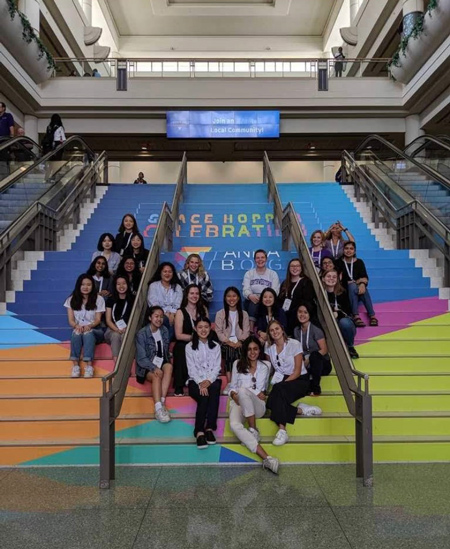
Today, Megha and Megan Yaur (computer science ’22) serve as co-presidents of the group, a community of female, non-binary, and trans students who are passionate about technology. WiC connects members with mentors and helps them develop technical and interpersonal skills through workshops and leadership opportunities. Events include tech talks, hack nights, interview prep (with industry experts from Google and Facebook), and participation in the Grace Hopper Celebration, a series of conferences offering career and learning opportunities to women in computing.
Outreach is also a major part of the group’s mission. WiC partners with Chicago Public Schools to introduce girls to coding. At Northwestern Engineering’s Career Day for Girls, group members taught eighth graders how to code using HTML and CSS. “I remember hearing one girl say, ‘This is so fun. I’m going to keep doing this at home,’” Yaur says.
The group is optimistic that they’ll be able to hold similar in-person events soon. “Students are eager to meet new people,” Yaur says. “I bet this year we’ll have an all-time record number of students who participate in student groups.”
Northwestern Formula Racing
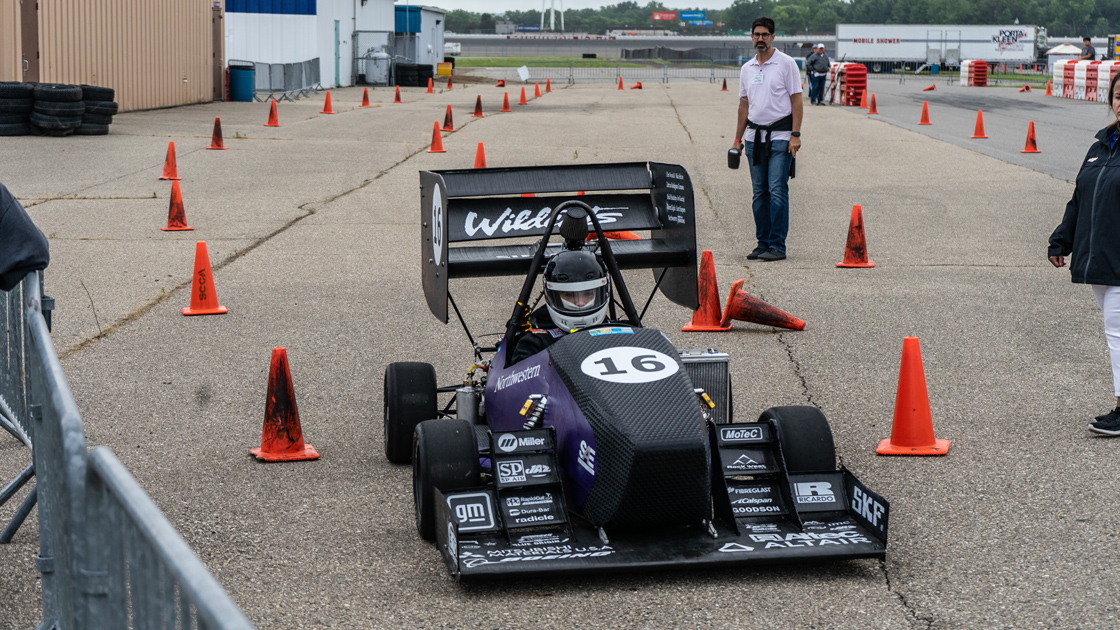
Northwestern Formula Racing gives students experience building, testing, and racing a car. Part of Formula SAE, an intercollegiate engineering design competition organized by SAE International (formerly the Society of Automotive Engineers), the Northwestern team builds one Formula-style internal combustion engine vehicle every academic year.
However, this year will be pivotal for team members as they embark on a two-year design cycle for their first electric vehicle, in addition to their annual internal combustion project. “We want to be more conscious of our contribution to the University’s vision for sustainability,” says project manager Brian Hong (economics and data science ’23), referring to the decision to go electric. “We’re also working to ensure the long-term success of the team.”
Being part of this passionate team is what Sarah Yung (mechanical engineering ’24), aerodynamics team lead, enjoys most about the group. “I can wander up to anybody in the autobay and learn all about their project or share what I’m doing with somebody who’s excited to learn,” she says. “It’s so much fun hanging out with Formula friends late at night, when we’re the last ones in Ford [Motor Company Engineering Design Center].”
